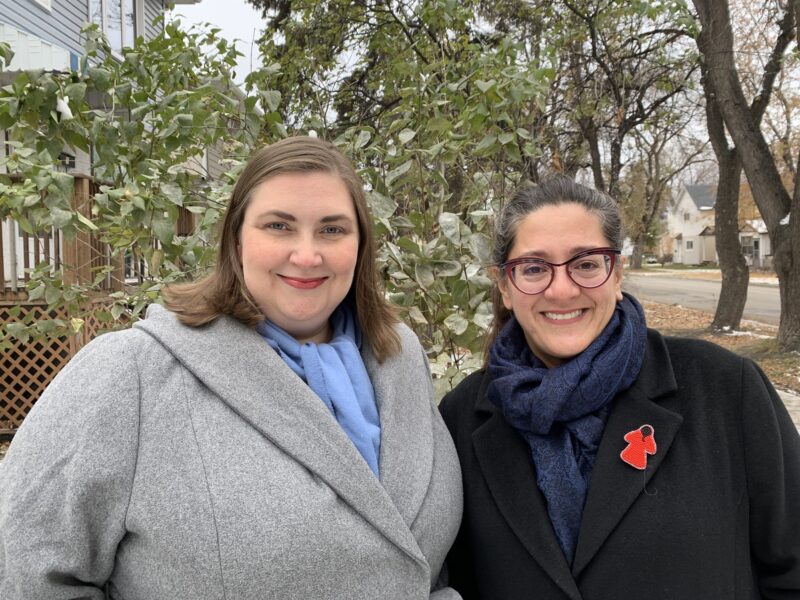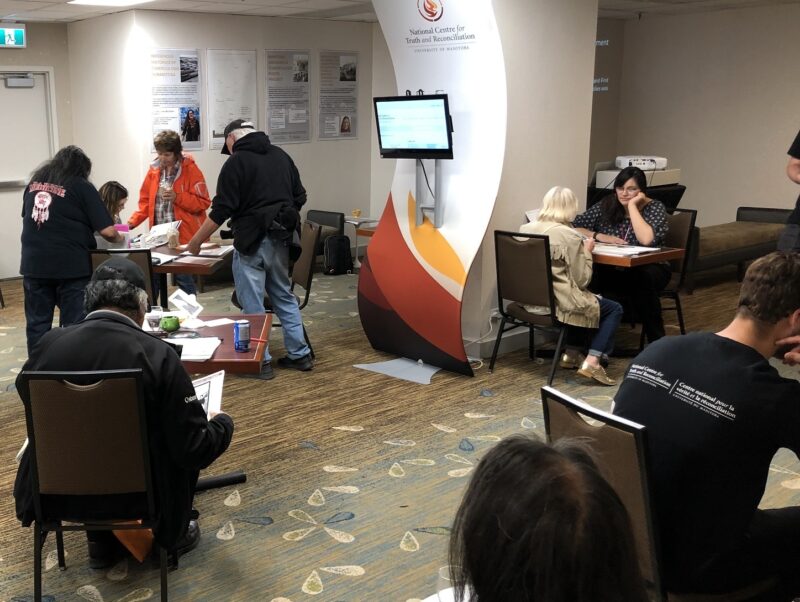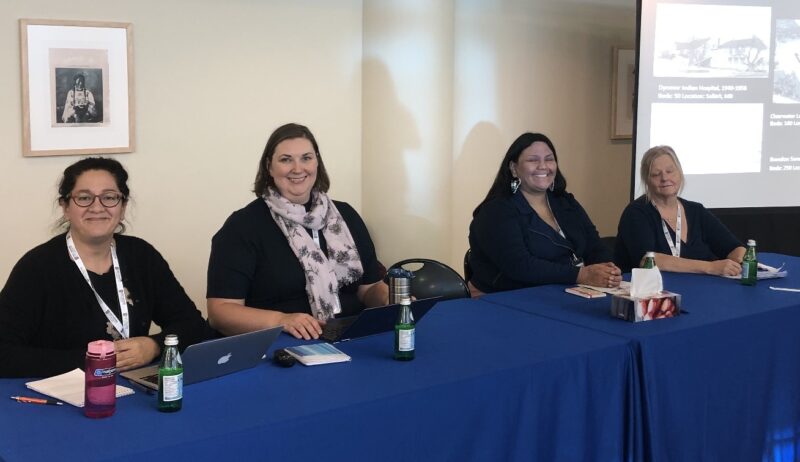About the Manitoba Indigenous Tuberculosis History Project
Hello, Hè, Boozhoo, Tansi, Aaniin, Wotziye, Ho/Han, Tanshi, Asujutilli!
Welcome to the Manitoba Indigenous Tuberculosis History Project (MITHP)! The MITHP is a multi-year Indigenous health history research project that explores the experiences of First Nations, Métis, and Inuit people who were treated for tuberculosis (TB) in Manitoba primarily between the 1930s and the early 1970s. Historical photographs of Indigenous patients and staff form the core of our study, and we are dedicated to the preservation, interpretation, and dissemination of these photographs as historical health records. We study and share these photos to expose the “hidden history” of Manitoba TB sanatoriums and racially-segregated ‘Indian’ hospitals, and to learn about the hospitals from former Indigenous TB hospital patients and staff.

Dr. Erin Millions, Research Director and Dr. Mary Jane Logan McCallum, Project Lead & Canada Research Chair in Indigenous People, History, and Archives, November 2020. Learn more about the MITHP team here.
Since launching the project at the National Gathering of Elders in September 2019, the MITHP has rapidly expanded in scope from a small social media initiative to a multi-faceted research project in response to demands from former Indigenous TB patients, families of patients, and communities for knowledge about and assistance with histories of Indigenous TB in Manitoba. Our work includes in-person photo workshops, public presentations, advocacy work related to access to historical health records, and research on deaths and burials of First Nations, Inuit, and Métis patients.
Community engagement and community accessibility are at the heart of the MITHP. We are an Indigenous-led and community-engaged project, which means that we take our cues from former patients, their families, and Indigenous communities on the work that we do. We work in collaboration with Elder Ruth Christie, the Manitoba Lung Association, the First Nations Health and Social Secretariat of Manitoba, the National Centre for Truth and Reconciliation, various archives across Canada, and Kishaadigeh (Manitoba Network Environment for Indigenous Health Research).

National Gathering of Elders, Winnipeg, Fall 2019
The MITHP team does in-depth archival history research to better understand the policies that directed TB care for First Nations, Métis, and Inuit in mid-twentieth-century Manitoba TB hospitals. Archival records from the Department of Indian Affairs, National Health and Welfare (now Health Canada), the Sanatorium Board of Manitoba, and church, provincial, municipal, and museum collections are consulted to understand the day-to-day operations of the hospitals. Community engagement includes identifying people and places in the historical photographs. In these ways, we are building collaborative historical understandings of Indigenous TB in Manitoba.
The goals of the MITHP are to:
- Share historical photos from Manitoba Indian hospitals and sanatoriums with Indigenous survivors, families, and communities
- Share research findings through this website, workshops, academic publishing, and a public history exhibit
- Advocate for increased Indigenous access to Indigenous health history records held by various non-Indigenous institutions
- Educate Indigenous communities, health care workers, students, and the public about histories of Indigenous health
Histories of Indigenous health care are histories that all Manitobans should know, and they should be accessible to other researchers, teachers, students, and the general public. Above all, this knowledge is shared with First Nations, Inuit, and Métis former TB patients, descendants, and affected communities so that the stories of loved ones and ancestors are not forgotten.

MITHP Team, Whose Settlement? Conference, First Nations University of Canada, Fall 2019
MITHP is currently funded through to November 2023 by the Canadian Institutes for Health Research, the Canada Research Chair for Indigenous People, History and Archives, the Manitoba Lung Association, and the University of Winnipeg. Funding for this website was provided in part by a grant from Manitoba Indigenous Reconciliation and Northern Relations in partnership with the Manitoba Lung Association.
Thank you, ekosani/ekosi, miigwech, naqumik, marsi, pidamaya ye
We extend our gratitude to all of the former patients, families, communities, Indigenous organizations, and the many, many archivists who have provided their support for this project.
This research is conducted on ancestral lands, on Treaty One Territory. These lands are the heartland of the Métis people. We acknowledge that our water is sourced from Shoal Lake 40 First Nation.
